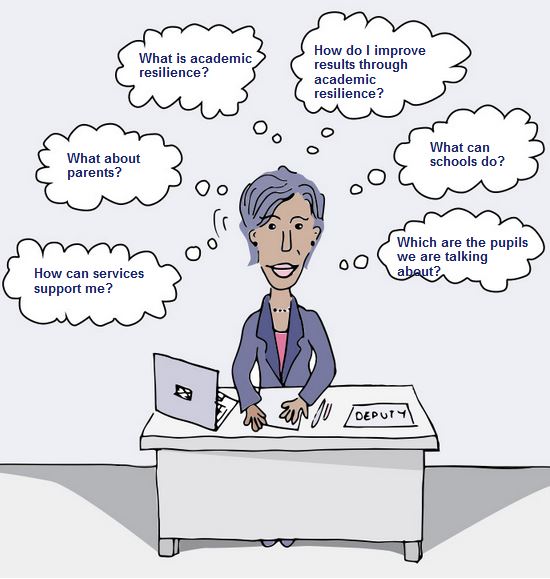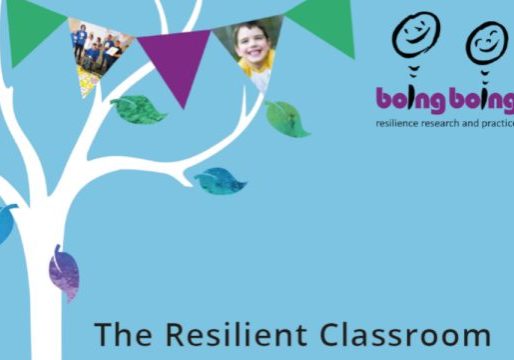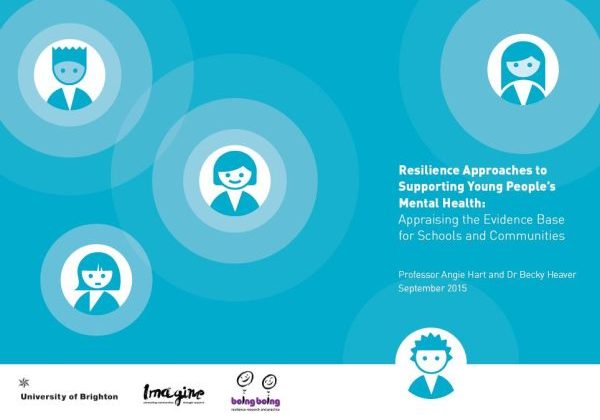The Academic Resilience Approach
There are many school resilience programmes which aim to narrow the gap between pupils who do well academically and those who don’t. A lot of them are very useful, so why have we put this information together?
• Resilience programmes can be expensive – we wanted to offer something everyone could access for free.
• We have been working on resilience for years, and have developed an approach which many schools find really helpful.
• People keep asking us to put something together specifically for schools to use – that is practical, realistic and easy to follow, and something that inspires people.
• Pupils who experience multiple disadvantages face greater challenges in school than most so we need a programme that really helps them.
Academic Resilience supports schools to step up the things they do so there is greater impact on the achievements of their most vulnerable or disadvantaged pupils.
What information will I find?
Free, accessible resources including practical tools, case studies, film clips, and downloads.
Some people in the school community are resilience ‘swots’. They are passionate about building pupils’ resilience and already know a lot about how to do it.
They may be using one of the many programmes out there that support this, and be lucky enough to be part of an all-singing and all-dancing research programme with extra resources. If so, you may have to check in with those programme co-ordinators as drawing on other sources could affect the programme’s fidelity.
Where do I start?
But if you’re not sure where to start in building pupils’ resilience, What is Academic Resilience? can provide a few simple ideas.
Where did the resource come from?
Academic Resilience – beating the odds for better results, is an approach for schools devised by Professor Angie Hart and Lisa Williams, and adopted by YoungMinds. Based on Professor Hart’s collaborative resilience work at the University of Brighton and Boingboing.
• Angie Hart is Professor of Child, Family and Community Health at the University of Brighton. Together with students, practitioners and community members, Angie has published widely on resilience based approaches to supporting children and families in schools and beyond. She co-founded Boingboing, a not for profit organisation which supports resilience based practice. Her resilience research profile is underpinned by professional and personal experience.
• Lisa Williams specialises in commissioning support and service improvement for children’s emotional and mental health systems. With a Public Sector MBA Lisa has over 20 years of experience gained in national and regional government, commissioning, public health and children’s services. Lisa develops and delivers training, consultancy and support to commissioners, schools and not-for-profit providers. As a Community Fellow for many years, Lisa has collaborated with the University of Brighton to strengthen the links between research, policy and practice in the field of children’s resilience. Her experience as a Governor within a rapidly improving secondary school inspired Lisa to develop the ‘Academic Resilience Approach’ with Professor Angie Hart, in partnership with YoungMinds.
• YoungMinds is the UK’s leading charity committed to improving the emotional wellbeing and mental health of children and young people. Driven by their experiences we campaign, research and influence policy and practice. They also provide expert knowledge to professionals, parents and young people through a Parents’ Helpline, online resources, training and development, outreach work and publications.


